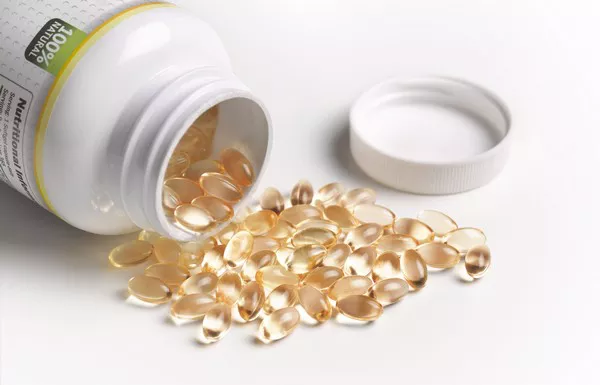The journey of pregnancy and childbirth is a remarkable and transformative experience in a woman’s life. During this time, the body goes through significant changes to accommodate the growing baby and support the birth process. After giving birth, new mothers often focus on the care and well-being of their newborns, but it’s equally important to prioritize their own health and recovery. One way to support postpartum health is by taking postnatal vitamins. In this comprehensive article, we will explore the importance of postnatal vitamins, the duration for which they should be taken, and the factors that influence this decision.
The Role of Postnatal Vitamins
Postnatal vitamins, often referred to as postpartum or postnatal supplements, are specially formulated multivitamins designed to meet the nutritional needs of new mothers during the postpartum period. These vitamins and minerals are essential for the recovery process and can help address potential nutrient deficiencies that may arise during pregnancy and breastfeeding.
The key components of postnatal vitamins typically include:
1. Folic Acid: This B-vitamin is crucial for cell division and the production of red blood cells. It continues to be important postpartum to support the mother’s overall health.
2. Iron: Iron is essential for preventing anemia, a condition characterized by low levels of red blood cells. Postnatal vitamins often contain iron to replenish stores depleted during pregnancy.
3. Calcium: Calcium is necessary for maintaining strong bones and teeth. It also plays a role in muscle function and nerve transmission.
4. Vitamin D: Vitamin D is vital for calcium absorption and bone health. It also supports the immune system and can help combat postpartum mood disorders.
5. Omega-3 Fatty Acids: These healthy fats, particularly DHA (docosahexaenoic acid), are important for the baby’s brain and eye development. They can also support the mother’s cardiovascular health.
6. B Vitamins: B vitamins, including B1 (thiamine), B2 (riboflavin), B3 (niacin), B6 (pyridoxine), and B12 (cobalamin), are essential for energy production, metabolism, and overall health.
7. Vitamin C: Vitamin C is an antioxidant that aids in wound healing and supports the immune system.
8. Vitamin E: Vitamin E is an antioxidant that helps protect cells from oxidative damage.
9. Zinc: Zinc is important for immune function, wound healing, and overall health.
Now, let’s delve into the essential question: How long should you take postnatal vitamins?
The Duration of Postnatal Vitamin Use
The duration for which postnatal vitamins should be taken can vary depending on several factors, including individual health needs, diet, and breastfeeding status. Here are some considerations:
1. Breastfeeding vs. Formula Feeding: If you are breastfeeding, your nutritional needs may be higher than if you are formula feeding. Breast milk provides essential nutrients to your baby, and the mother’s body often prioritizes the baby’s needs over hers. Therefore, many healthcare providers recommend continuing to take postnatal vitamins throughout the entire duration of breastfeeding to ensure that both mother and baby receive the necessary nutrients.
2. Nutritional Intake: Your diet plays a significant role in determining how long you should continue taking postnatal vitamins. If your diet is rich in a variety of nutrient-dense foods, you may be able to discontinue the supplements earlier. However, if you have dietary restrictions or limited access to certain foods, postnatal vitamins can help fill potential nutrient gaps.
3. Health Considerations: Some women may have specific health conditions or medical history that necessitates ongoing vitamin and mineral supplementation. In such cases, the duration of postnatal vitamin use should be discussed with a healthcare provider.
4. Consulting a Healthcare Provider: It is essential to consult with your healthcare provider, such as an obstetrician, gynecologist, or a registered dietitian, to determine the appropriate duration for taking postnatal vitamins. They can assess your individual health needs and make personalized recommendations.
5. Transitioning to a Regular Multivitamin: As your postpartum period progresses, and if you are no longer breastfeeding, your healthcare provider may recommend transitioning to a regular, well-balanced multivitamin that aligns with your specific health goals and needs.
It’s worth noting that postnatal vitamins are generally considered safe when taken as directed. However, it is crucial not to exceed the recommended dosage, as excessive intake of certain vitamins and minerals can have adverse effects.
In Conclusion
Taking postnatal vitamins is a valuable practice for new mothers to support their health during the postpartum period and ensure they are meeting their nutritional needs. The duration for which you should take these supplements is influenced by various factors, including breastfeeding status, diet, individual health, and guidance from healthcare providers.
Ultimately, the decision on when to discontinue postnatal vitamins should be made in consultation with a healthcare professional who can provide personalized recommendations based on your unique circumstances. Prioritizing your health during the postpartum period is not only essential for your well-being but also sets a positive example for your child’s future health habits.


